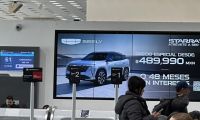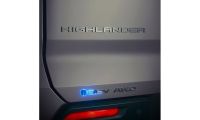Let me be completely transparent; I am biased because I spend a significant amount of time testing and studying the capabilities of electrified vehicles. I am fascinated by their ability to move us using electricity. My fascination comes from a youthful infatuation with all manner of vehicles and the things they allow us to do or experience, as well as a sincere desire to preserve the beauty of our planet and to do more to reduce the impact my family and I have on it.
However, if you read some articles, like this one from autoevolution.com with the headline “Real-World Data Shows Plug-In Hybrid Vehicles Are Less Efficient Than ICEs”, you may feel a little sick to your stomach. First off, this headline is patently false. It is not true that Plug-In Hybrids are less efficient than a similarly sized non-hybrid internal combustion engines (ICEs). What the headline really means, and should have stated, was that depending on how one drives a PHEV, real world fuel economy can be significantly lower than the regulatory agency ratings might suggest. But that’s far too long and difficult a headline of course, and much less attention grabbing. Controversy breeds clicks!.
Then there are pieces like this one from seekingalpha.com. It concludes that “car buyers simply want PHEVs more than any other cars”. This oversimplified explanation for why PHEVs have such long wait times is almost certainly not accurate, but if it was and the autorevolution.com’s headline was too, we should be seriously worried about emissions getting worse as more and more people buy plug-in hybrids that actually create worse pollution! But that’s, as they say, fake news. PHEVs have long wait times because manufacturers are not making that many of them (compared to ICEs). There’s a few simple reasons for this, but first and foremost it is because manufacturers haven’t built up a supply chain (for batteries in particular) that would allow them to make all the batteries needed to fully electrify their model lines. Manufacturers also have to decide how they’ll allocate limited battery supply among EVs, PHEVs and HEVs and PHEVs often “lose out” to the other two.
As the owner of multiple PHEVs, I can offer good examples of how much more efficient PHEVs can be, as long as one understands how they are meant to be used. Of course, one person’s data does not represent a particularly large body of evidence, but hear me out. I own a Kia Sorento PHEV and over the last 15 months of ownership my combined (electric and gas) driving efficiency equates to about 68 MPG. This means that a vehicle that is verging on twice the weight and size of a Toyota Prius is getting around 25% better fuel economy than the most efficient standard Prius hybrid. Also, over the 4 and half years I drove a Chevy Volt PHEV (primarily as my commuting vehicle, as opposed to our family hauling, vacation going, and errand running as we tend to use the Sorento), I managed to get a whopping 262 MPG combined. Clearly, the efficiency of a PHEV is or easily can be superior to ICE vehicles, however it all comes down to how the vehicle is driven.
To be fair, that is also the point of the autoevolution article and the studies it refers to. The reality is that there are people out there who won’t, or can’t, utilize the PHEVs primary design feature though: the ability to plug in and run on electricity alone for extended distances. The first studies that pointed this out came out of Europe, and one thing I noticed that those studies failed to analyze was that in at least some of the countries they focused data collection on, many PHEV drivers were driving “company cars” and being reimbursed for fuel. However, that reimbursement typically only covered gasoline and or diesel fuels and specifically did not reimburse owners for the cost of electricity they could otherwise use. As such, many European PHEV drivers simply chose not to plug their rechargeable vehicles in that often, and thus wound up using a lot more petroleum than anticipated. Add to this the fact that many drivers in Europe (and the U.S.) don’t have home garages or access to charging points at home, and the fact that manufacturer’s have made a lot of “weak” PHEVs too (which I describe as PHEVs with electric ranges less than people’s average daily driving distance, or whose all electric mode is too easily overridden), and you get a little bit of support for the notion that PHEVs aren’t actually doing what they are supposed to. But that doesn’t mean they are right. Even when a PHEV runs on gas or diesel, it still runs as a hybrid, which means it is most likely getting at least marginally better fuel economy than an ICE equivalent. Detractors will then point out that the environmental impacts from the manufacture of the battery and other components, the faster degradation of tires, etc. further complicate the story of PHEVs. But we can counter these arguments and prove the merit of PHEVs definitively.
If we make public 240 Volt charging ubiquitous, and cheap, and if automakers make “strong” PHEVs, we will dramatically reduce the occurrence of people avoiding plugging in their PHEVs (because drivers of PHEVs want to save money and get improved performance from their vehicles by using electricity). The large traction batteries in hybrids and EVs are already being reused and recycled (their value is too great not to). While a certain number do get destroyed in accidents or end up in scrap yards, older batteries are used in stationary power storage and or as raw materials for new batteries. Redwood Materials is just one of many new recycling companies founded to turn our end of life vehicle batteries into new batteries. Tires and their pollution is presently far more of a problem due to ICE vehicles than it is of electrified vehicles (given the vastly larger number of ICE vehicles). We will eventually make tires from more biodegradable materials and make them last longer (like the airless Michelin tires) and these things will reduce pollution even further.
There you have it, my not so succinct critique of some of the objectively false criticisms (and praise) of PHEVs. They are a stepping stone technology for us meant to transition us away from the use of fossil fuels for propulsion. They can be more or less efficient and effective at reducing emissions as full EVs.
What do you think about this? Have you changed your mind about PHEVs or EVs recently? Please leave any questions or comments below.
Image courtesy of Justin Hart.
Justin Hart has owned and driven electric vehicles for over 15 years, including a first generation Nissan LEAF, second generation Chevy Volt, Tesla Model 3, an electric bicycle and most recently a Kia Sorento PHEV. He is also an avid SUP rider, poet, photographer and wine lover. He enjoys taking long EV and PHEV road trips to beautiful and serene places with the people he loves. Follow Justin on Twitter for daily KIA EV news coverage.
Set as google preferred source












Comments
I agree. It depends entirely
Permalink
I agree. It depends entirely on how you use them. I have a BMW 330E - in the 16,000 miles I've driven it, I've averaged 258mpg. That's mostly doing short journeys, with charging available at home and work. The whole life emissions of this car should be half those from a similar BEV, because of not manufacturing a big battery.
Exactly! Of course some
Permalink
In reply to I agree. It depends entirely by John (not verified)
Exactly! Of course some drivers may need to go 100-200 miles a day and a full EV may work out better in such cases, but that’s not the most common scenario for drivers, either. My Volt PHEV was cheaper to own and may have had lower lifetime emissions than my first EV (2011 Nissan LEAF) given that I mostly drove it on short drives. If only public transportation and care sharing were everywhere in the U.S…. it might help us better align our needs to our purchases (i.e. buy what we need rather than what we want).
Excellent summary of PHEVs.
Permalink
Excellent summary of PHEVs. You gave me good perspective.
Now a list of strong PHEVs would be most helpful!
I’ll get right on it! Thanks
Permalink
In reply to Excellent summary of PHEVs. by CR (not verified)
I’ll get right on it! Thanks for the suggestion!!
Is there a database of
Permalink
Is there a database of Dealers who don’t do massive mark-ups for PHEVs? I purchased a KIA EV6 for my daily 220 mile commute- I charge at home. We are looking to buy a Sorento PHEV but it is difficult to find any honest dealership who is willing to sell at MSRP.
Sort of… there’s a website
Permalink
In reply to Is there a database of by DCC (not verified)
Sort of… there’s a website that has self-reported instances of dealers charging markups. Basically it can tell you which dealers are charging markups as reported by buyers… but it won’t be a comprehensive list of all dealers, it just gives you some reference points of dealers to avoid. You will have to call around otherwise. The website is called markups.org.